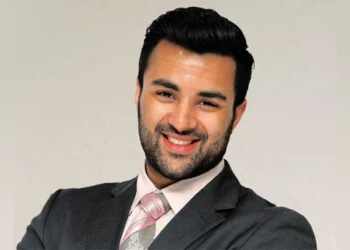Friedrich Merz, a name long associated with conservative reform in Germany, has emerged once again at the forefront of German politics. With a career spanning law, business, and parliament, Merz has become a symbol of both traditional Christian Democratic values and economic modernization. In 2025, his political persistence paid off as he led the Christian Democratic Union (CDU) to electoral victory, positioning him to become Germany’s next Federal Chancellor.
Key Information
| Field | Details |
| Full Name | Joachim-Friedrich Martin Josef Merz |
| Date of Birth | November 11, 1955 |
| Place of Birth | Brilon, North Rhine-Westphalia, West Germany |
| Nationality | German |
| Ethnicity | German |
| Education | – University of Bonn: Law degree
– University of Marburg: Law degree |
| Political Party | Christian Democratic Union (CDU) |
| Current Position | Leader of the CDU; Chancellor-designate of Germany |
| Previous Roles | – Member of European Parliament
– Member of Bundestag – Chairman of CDU/CSU parliamentary group |
| Family | Married to Charlotte Merz; three children |
| Children | Three (Details of names and ages not publicly disclosed) |
| Residence | Arnsberg-Niedereimer, Germany |
| Languages Spoken | German, English |
| Religion | Catholic (Raised in a Catholic family) |
| Political Views | Conservative, Economic Liberalism, Supporter of European Union integration |
| Hobbies | Private pilot; owns two aircraft; enjoys skiing, reading, and music |
| Philanthropy | Co-founder of the Friedrich and Charlotte Merz Foundation, supporting educational and social causes |
| Military Service | German Army (Panzer Artillery Training Battalion 310) |
| Awards | – Golden Door Award
– Member of TIME’s Most Influential People 2025 list |
| Social Media | Not publicly active on personal social media platforms |
| Favorite Author | A fan of biographies, often cites learning from historical figures such as Winston Churchill and Theodore Roosevelt |
| Favorite Quote | “A politician has to think for the future and not just for today.” |
| Interest in Aviation | Owns two aircraft and holds a private pilot license; enjoys flying as a hobby |
| Public Speaking | Frequently speaks at global economic forums and policy discussions, focusing on economic growth, Germany’s future, and Europe’s place in the world |
| Support for Technology | Strong advocate for digital transformation, innovation in tech, and sustainability, particularly in the automotive and energy sectors |
Early Life and Legal Foundations
Born on November 11, 1955, in Brilon, a small town in North Rhine-Westphalia, Friedrich Merz grew up in a Catholic middle-class family with deep civic roots. His father was a judge, which influenced his early decision to pursue law. Merz completed his legal education at the University of Bonn and the University of Marburg, later passing the second state examination to become a fully qualified lawyer.
During his university years, he was already politically active, joining the Young Union (Junge Union) — the youth wing of the CDU/CSU — in 1972. His passion for politics and governance was evident even then, coupled with a belief in free-market principles and strong state institutions.
Entry into Politics and Rise in the Bundestag
Friedrich Merz first entered public office in 1989 as a Member of the European Parliament, where he served until 1994. His ability to combine legal precision with political insight caught the attention of CDU leadership, and he soon transitioned to national politics, winning a seat in the Bundestag from the Hochsauerland constituency.
Merz rose to national prominence when he became the Chairman of the CDU/CSU parliamentary group in the Bundestag in 2000, effectively becoming the opposition leader to the then-Social Democratic government. His time in this role was marked by clear advocacy for tax reform, economic liberalism, and streamlined government — ideas that earned him support from the CDU’s conservative and business wings.
However, internal party rivalries, particularly with then-CDU leader Angela Merkel, led to a gradual decline in his influence, and by 2009, Merz had stepped away from active politics.
Corporate Career and Strategic Expertise
Following his withdrawal from politics, Merz made a highly successful transition to the corporate world. Most notably, he served as the Chairman of the Supervisory Board of BlackRock Germany, where he further honed his economic and financial expertise. His time in the private sector enhanced his reputation as a serious economic thinker and provided him with new perspectives on governance and regulation.
Return to Politics and CDU Leadership
Friedrich Merz’s re-entry into the political arena began in 2018, following Angela Merkel’s announcement that she would step down as CDU leader. Although he lost the 2018 and 2021 leadership contests, his persistence and support within the party grew steadily. In January 2022, Merz was elected CDU party leader, signaling a shift towards a more traditional conservative platform.
Under his leadership, the CDU regained momentum, focusing on economic competence, internal security, and pragmatic diplomacy. In the February 2025 federal elections, the CDU secured a plurality, setting Merz on the path to becoming Chancellor of Germany, with formal swearing-in expected in May 2025.
Personal Life and Values
Merz is known for his disciplined and principled persona. He is married to Charlotte Merz, a respected judge and director of the Arnsberg District Court. The couple has three children and resides in Arnsberg-Niedereimer.
Aside from politics, Merz is a licensed private pilot and owns two aircraft, often flying himself to events across Germany. He is also actively involved in community work through the Friedrich and Charlotte Merz Foundation, which supports education and youth development in his hometown.
Legacy and Vision
Friedrich Merz’s political philosophy blends economic liberalism with cultural conservatism, emphasizing fiscal discipline, national security, and European cooperation. Unlike many modern populists, he combines traditional values with a deep respect for democratic institutions and the rule of law.
As he prepares to assume the chancellorship, Merz faces the dual challenge of unifying a diverse electorate while navigating complex global shifts — from digital transformation and energy security to international relations. His blend of experience, resilience, and reformist vision positions him to be a chancellor of both continuity and change.
Interesting Facts About Friedrich Merz
- A Private Pilot:
Friedrich Merz is a licensed private pilot and is passionate about aviation. He owns two aircraft, which he sometimes flies himself to political events across Germany. - Corporate Experience:
After stepping away from politics in the 2000s, Merz had a successful career in the corporate world. He served as the Chairman of BlackRock Germany, where he helped shape global financial strategies before returning to politics. - Philanthropy and Education:
Merz is deeply committed to his community, particularly through the Friedrich and Charlotte Merz Foundation, which supports educational initiatives and youth programs in his hometown, Arnsberg. - Political Comeback:
Although initially losing two attempts at CDU leadership in 2018 and 2021, Merz’s political resilience paid off when he became the leader of the CDU in 2022. His leadership has been credited with rejuvenating the party after Merkel’s long tenure. - German Military Service:
Merz served in the German Army during his youth, training with the Panzer Artillery Training Battalion 310, which he credits as formative in developing his leadership skills. - Global Recognition:
In 2025, Merz was named in TIME’s Most Influential People list, marking his influence not only within Germany but also on the global political stage, as he prepares to become the next Chancellor of Germany. - Cultural Engagement:
Merz has embraced pop culture, even humorously engaging with the German comedian Stefan Raab, who released a satirical song based on Merz’s quotes during his 2025 election campaign. - Conservative Leadership:
Known for his economic liberalism, Merz has often advocated for tax reforms, free-market principles, and a strong state. His vision for Germany focuses on maintaining economic stability, global competitiveness, and national security.
Read more biographies and success stories of business leaders, celebrities, healthcare professionals etc. at Leader Biography.






